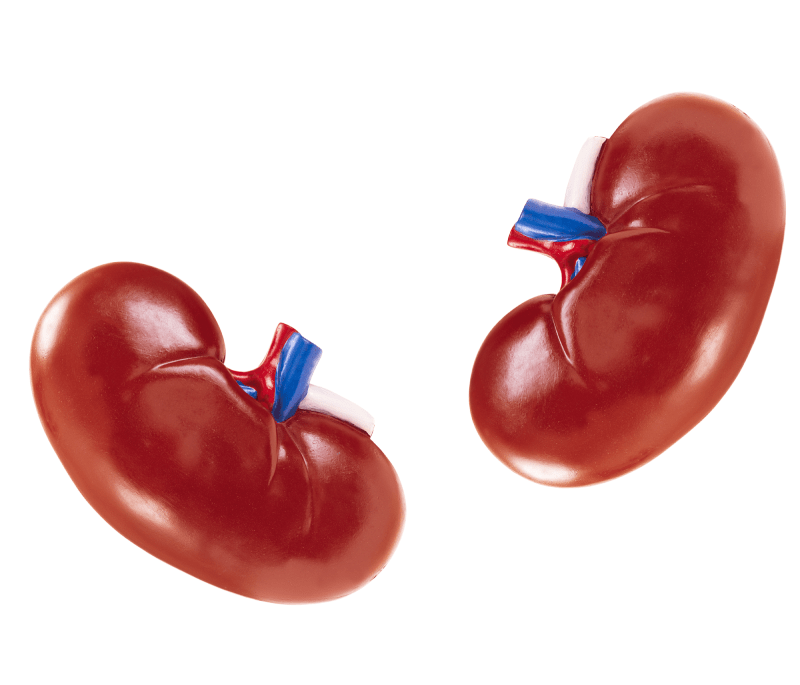Is Kidney Transplantation Legal in Turkey? Who Cannot Be a Kidney Donor?
Who Can Be a Kidney Transplant Donor According to Turkish Law?
In Turkey, kidney transplantation is a common medical practice for patients suffering from end-stage kidney disease. A kidney transplant can improve the quality of life and increase the longevity of patients. However, finding a suitable donor can be a challenging task. This article will discuss who can be a kidney transplant donor according to Turkish law.
In Turkey, there are two types of kidney donors: living donors and deceased donors. Living donors are individuals who donate one of their kidneys to a recipient. Deceased donors, on the other hand, are individuals who donate their organs after their death. Both types of donors have different criteria for eligibility.
Living donors must be at least 18 years old and in good health. They must undergo a series of medical tests to ensure that they are compatible with the recipient and that their kidney is healthy enough to be transplanted. The medical tests include blood tests, imaging tests, and a physical examination. Living donors must give written consent to the transplant and undergo counseling to understand the risks and benefits of the procedure.
According to Turkish law, living donors must be related to the recipient by blood, marriage, or adoption. The law allows donations between spouses, siblings, children, parents, grandparents, and grandchildren. Other living donors must provide proof of a close and longstanding relationship with the recipient.
Deceased donors, on the other hand, can donate their organs if they have given permission during their lifetime or if their family consents after their death. The law requires that the deceased donor’s organs be medically suitable for transplantation and that the consent of the donor’s family be obtained.
In conclusion, anyone over the age of 18 who is in good health and meets the eligibility criteria can be a living kidney donor in Turkey. Living donors must be related to the recipient by blood, marriage, or adoption, or must provide proof of a close and longstanding relationship with the recipient. Deceased donors must have given permission during their lifetime or have their family’s consent after their death. The Turkish law ensures that the donation process is safe and ethical for all parties involved.

Is Kidney Transplantation Risky?
Like any major medical procedure, kidney transplantation involves a certain amount of risk. However, with current advanced medical technology and experienced medical professionals, kidney transplantation is generally considered a very safe and effective treatment option for end-stage kidney disease. Possible risks of kidney transplant surgery are as follows;
- Rejection
- Infection
- Blood clots
- Complications related to anesthesia
- Post-surgical complications
- Cancer
In conclusion, kidney transplantation is a safe and effective option for end-stage kidney disease treatment. However, there are associated risks. Patients should discuss the risks and benefits of kidney transplantation with their medical team to make an informed decision about the best treatment option for their unique health conditions. Regular medical follow-up, adequate compliance with medications and follow-up appointments, and a healthy lifestyle can help to minimize the risks and maximize the benefits of kidney transplantation.
Who Can Be a Kidney Donor in Turkey?
The eligibility criteria for kidney donors in Turkey are well-defined. Living donors must be over 18 years of age, in good health, and related to the recipient by blood, marriage, or adoption. If the prospective living donor is not related to the recipient, they must provide proof of a close, longstanding relationship. Deceased donors can authorize their organ donation or their families must agree to donate after the individual has passed away. The Turkish government strictly regulates the donation process to ensure that it is conducted ethically and safely.
Who Cannot Be A Kidney Donor?
Age Limitations
There is an age limit for kidney donors. Typically, potential donors must be between 18 and 60 years old. However, some transplant centers may extend this age range up to 70 years. Advanced age may be associated with increased health issues, making individuals ineligible for donation.
Health Conditions
Donors must be in excellent physical and mental health. Certain medical conditions may exclude individuals from donating a kidney, such as high blood pressure, diabetes, kidney disease or liver disease. Potential donors with any conditions which may impair kidney function are usually not suitable for donation.
Infectious diseases
Donors must also not have certain infectious diseases that can be transmitted to the recipient. Examples of such infectious diseases include HIV, Hepatitis B, Hepatitis C, and some sexually transmitted infections. These diseases can be transmitted to the recipient through the donated kidney during transplantation.
Substance abuse
Individuals with a history of drug or alcohol abuse are ineligible for kidney donation. Drug and alcohol addiction may damage the kidney, making it unsuitable for transplantation.
Mental Health Issues
Donors must be emotionally stable and mentally healthy to donate a kidney. They must undergo a comprehensive psychological evaluation to ensure they can cope with the emotional and physical aspects of kidney donation.
Pregnancy
Pregnant women cannot be kidney donors. Donations may cause stress or harm to the body, and pregnancy can further partner the physical stress.
In Conclusion, kidney transplantation is a life-saving medical procedure that requires healthy donors. Potential donors must meet specific requirements and undergo extensive screening to ensure they are safe to donate.
What is the Preparation for Kidney Transplantation in Turkey?
Kidney transplantation is a life-changing medical procedure that can improve the quality of life for individuals with end-stage kidney disease in Turkey. Before a transplant can take place, however, certain preparations must be made. In this article, we will discuss the steps involved in the preparation for kidney transplantation in Turkey.
- Step 1: Medical Evaluation
The first step in preparing for a kidney transplant in Turkey is a medical evaluation. This involves a series of tests and examinations to determine if the patient is a suitable candidate for the procedure. The doctors will assess the patient’s overall health, check their blood type, and test for any underlying medical conditions that could affect the transplant.
- Step 2: Finding a Donor
The next step is finding a suitable donor. In Turkey, potential kidney donors can be living donors or deceased donors. Living donors must be related to the recipient by blood, marriage or adoption, or provide proof of a close, longstanding relationship. If a living donor cannot be found, the patient will be added to the national waiting list for a deceased donor kidney.
- Step 3: Matching and Compatibility Testing
Once a donor has been identified, compatibility testing must be done to ensure that the donor and recipient are a match. This usually involves a series of blood tests and tissue typing. Matching is essential because it reduces the risk of the recipient’s immune system rejecting the donor kidney.
- Step 4: Pre-Transplant Preparations
Prior to the surgery, the patient will undergo a series of pre-transplant preparations, including:
- Meeting with an anaesthesiologist to discuss anesthesia options and potential risks.
- Stopping or adjusting certain medications that could interfere with the transplant.
- A physical examination to confirm the patient’s overall health status.
- Education on the transplant process, post-surgery care, and potential complications.
- Step 5: The Transplant Surgery
The transplant surgery can take several hours to complete, depending on the complexity of the procedure. During the surgery, the diseased kidney is removed, and the donated kidney is placed in its position. The transplanted kidney is then connected to the nearby blood vessels and urinary tract.
- Step 6: Post-Transplant Follow-up
After the surgery, the patient will be closely monitored to ensure that their body is accepting the new kidney. They will need to take immunosuppressant medication to prevent their immune system from rejecting the new organ. The patient will have regular follow-up appointments with their transplant team to monitor their health, adjust their medication, and manage any potential complications.
The preparation for kidney transplantation in Turkey is a complex process that requires careful evaluation and planning. With a well-planned approach and expert medical care, patients can undergo a successful kidney transplant and improve their quality of life significantly. Kidney transplant surgery is a very serious procedure. For this reason, you need to make sure that it is done by reliable and expert doctors. The slightest mistake or inexperience can reveal possible risks. For kidney transplant or successful organ transplant surgery in Turkey, you can send us a message.

How Long Does Kidney Transplant Surgery Take in Turkey?
The length of time the kidney transplant surgery takes can vary depending on several factors, including the patient’s health status, the type of transplant procedure performed, and the complexity of the operation.
On average, a kidney transplant surgery in Turkey takes around three to four hours to complete. However, the procedure can take longer or shorter depending on the patient’s specific needs.
The first step in the transplant surgery is to remove the failed kidney from the recipient’s body. This takes approximately one to two hours to complete. The second step is to transplant the new kidney. This step takes approximately two to three hours to complete, depending on the complexity of the transplant.
Which Documents Should I Bring With Me If I Go To Turkey For Kidney Transplant Treatment?
If you are planning to travel to Turkey to receive a kidney transplant treatment, it is essential to prepare well in advance. One crucial aspect of this preparation is to ensure that you have all the necessary documents required for the procedure. In this article, we will discuss which documents you should bring with you if you go to Turkey for kidney transplant treatment.
- Passport and Visa:
If you are traveling to Turkey from another country, you will need a valid passport to enter the country. You should also check if your country requires a visa to enter Turkey. Before traveling, check with the Turkish embassy or consulate in your country to obtain the necessary documents.
- Medical Reports:
Before you arrive in Turkey, you should gather all the relevant medical documentation regarding your kidney condition. This includes medical reports, test results, and imaging scans related to your kidney disease.
- Transplant Referral:
You will also need a transplant referral from your doctor, which will include your medical history and the results of your kidney function tests. This letter serves as proof that you are a suitable candidate for a kidney transplant.
- Pre-Transplant Evaluation:
If you have undergone any previous medical treatments, surgeries, or dialysis for kidney disease, bring documentation for the same. Bring a record of your pre-transplant evaluations as well, which may include blood group certification, antibody-screening test reports, and compatibility testing.
- Authorization for Organ Transplantation:
Organ transplantation regulations in Turkey require potential transplant recipients to obtain an authorization certificate. This certificate states that you are eligible to undergo a kidney transplantation procedure and covers health insurance and social security issues.
- Consent Forms:
Make sure you have copies of all consent forms related to the procedure, including consent for medical treatment, anesthesia, and organ donation.
In conclusion, preparing for a kidney transplant in Turkey involves gathering several documents and ensuring you have them all before traveling. Before traveling to Turkey for the kidney transplant surgery, ensure that you confirm the list of required documents with your transplant specialists or medical facility to ensure a hassle-free process.

Importance of Kidney Transplantation Instead of Dialysis
Better Quality of Life
Kidney transplantation allows individuals to lead a more active and healthy lifestyle compared to dialysis. Dialysis requires patients to restrict their diet and take several medications regularly, while a kidney transplant frees them from regular dialysis treatments, allowing them to perform daily activities and improve their overall quality of life.
Increased Life Expectancy
Kidney transplantation can help increase the lifespan of individuals with end-stage kidney disease. People who undergo kidney transplantation have a better chance of living longer than those who undergo dialysis. Transplant patients can expect to live significantly longer than dialysis patients, allowing them to spend more time with their loved ones.
Increased Cost-Effective
Kidney transplantation is cost-effective compared to long-term dialysis. Although kidney transplantation involves a higher initial cost, the long-term cost of treatment over a patient’s lifespan is significantly lower than ongoing dialysis treatment costs.
Reduced Health Risks
The life expectancy of kidney transplant recipients is higher than those treated only with dialysis. There are also certain health risks associated with dialysis, including fluid buildup, anemia, bone disease and infections, which can be reduced when the patient opts for a kidney transplant instead.
Greater Independence
Kidney transplantation offers greater independence to individuals with end-stage kidney disease. When on dialysis, patients spend considerable time at a dialysis center undergoing treatment, which can be inconvenient and reduce their ability to work or travel. With kidney transplantation, individuals do not have to be restricted and can live a normal life independently.
In conclusion, kidney transplantation offers many advantages over dialysis. It improves the quality of life, increases life expectancy, is cost-effective, reduces health risks and offers greater independence to individuals with end-stage kidney disease. While kidney transplantation may not be the right option for all patients, it is essential for anyone seeking treatment for end-stage kidney disease to understand the advantages of kidney transplantation over dialysis.
